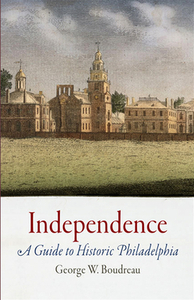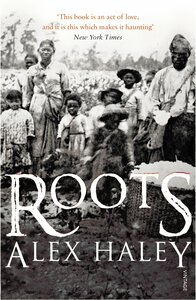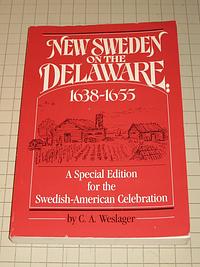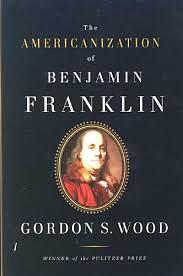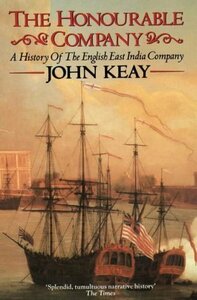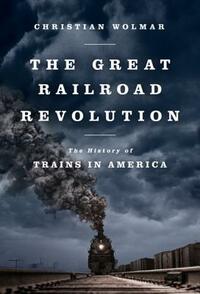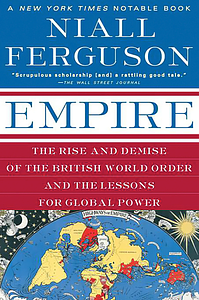Take a photo of a barcode or cover
manish25's Reviews (114)
dark
emotional
informative
reflective
sad
tense
medium-paced
I first spotted Liberty’s Exiles nearly a year ago at the Museum of the American Revolution in Philadelphia. It caught my eye, but for some reason, I didn’t pick it up then. I’m so glad I finally did—because this book turned out to be an absolute revelation.
Maya Jasanoff has crafted a sweeping, beautifully written history that brings to life the forgotten story of the Loyalists—those who sided with the British during the American Revolution and were forced to forge new lives in exile across the globe. Her narrative is both scholarly and deeply human, tracing the paths of individuals and families as they scattered to places like Nova Scotia, Sierra Leone, and the Caribbean, remaking not only their lives but the British Empire itself.
Once I opened the book, I was completely hooked. I lay down one night and read for four straight hours, completely absorbed. Jasanoff’s writing is elegant and evocative, but what struck me most was how vividly she rendered the emotional weight of displacement and loyalty in the age of revolution. These were stories I hadn’t encountered in school textbooks—stories of resilience, reinvention, and the complicated legacies of freedom and empire.
Liberty’s Exiles is not just a brilliant work of history; it’s a moving, thought-provoking read that lingers long after the final page. I only wish I had picked it up sooner—but perhaps the timing was just right after all.
informative
fast-paced
I really wish I had read this guide before my first trip to Philadelphia—it would have made the experience way more meaningful. Independence: A Guide to Historic Philadelphia is a solid and well-researched companion to anyone exploring the city’s historic core. It does a great job of putting landmarks like Independence Hall, the Liberty Bell, and Franklin Court into their broader historical and cultural context.
What I appreciated most was how accessible and thoughtfully structured the content is. It doesn’t just throw facts at you—it tells the story of the city’s role in American history in a way that feels engaging and relevant. The maps and suggested walking routes are also a nice touch, helping to make sense of how all the sites connect spatially.
That said, the guide could be a little more updated in terms of newer exhibits or recent restorations, and a few places felt like they deserved more attention. Still, it’s an invaluable resource for history buffs and casual tourists alike. If you're planning a visit to Philadelphia—especially the Old City area—read this first. Trust me, it adds a layer of depth that makes the visit so much richer.
adventurous
emotional
informative
inspiring
mysterious
sad
tense
medium-paced
Stephen Ambrose’s Undaunted Courage is a remarkable achievement in narrative history—gripping, illuminating, and deeply human. After sitting untouched on my nightstand for far too long, I finally opened it—and almost immediately regretted not doing so sooner. What awaited me was not just a biography of Meriwether Lewis or a retelling of the Lewis and Clark expedition, but a powerful, immersive journey into the heart of American exploration.
Ambrose masterfully brings Meriwether Lewis to life—not just as Thomas Jefferson’s protégé or the leader of the Corps of Discovery, but as a complex, courageous, and deeply compelling figure. Lewis's intelligence, ambition, and unwavering determination shine throughout the book, but Ambrose doesn’t shy away from his internal struggles either. This layered portrait makes Lewis feel less like a distant historical figure and more like a real person—brilliant, flawed, and deeply admirable.
The book excels in its narrative drive. Ambrose has a gift for turning detailed historical research into vivid, accessible storytelling. From the logistical headaches of outfitting the expedition to the awe-inspiring encounters with uncharted landscapes and Native nations, every chapter pulses with energy and insight. The attention to detail—geographical, political, cultural—enriches the story without ever bogging it down.
Above all, Undaunted Courage captures the spirit of exploration—its risks, its triumphs, and its costs. It reminds us just how ambitious and uncertain the Lewis and Clark expedition was, and how extraordinary it was that it succeeded.
Reading this book feels like a journey in itself: fascinating, emotional, and unforgettable.
Reading this book feels like a journey in itself: fascinating, emotional, and unforgettable.
Highly recommended for anyone interested in American history, biography, or just a truly great story. I only wish I had read it sooner.
adventurous
informative
fast-paced
I recently had the pleasure of diving into Swedes and Dutch at Newcastle by C.A. Weslager, and I must say, it was an absolute delight. After thoroughly enjoying his New Sweden on the Delaware, I was eager to explore more of his work—and this book did not disappoint.
Weslager’s meticulous research and vivid storytelling bring the rich history of Swedish and Dutch settlers in Newcastle to life, offering an engrossing look at a pivotal moment in American history. His ability to weave history with narrative brilliance has made me a lifelong fan, and I’m now looking forward to exploring more of his incredible works. Highly recommended!
Weslager’s meticulous research and vivid storytelling bring the rich history of Swedish and Dutch settlers in Newcastle to life, offering an engrossing look at a pivotal moment in American history. His ability to weave history with narrative brilliance has made me a lifelong fan, and I’m now looking forward to exploring more of his incredible works. Highly recommended!
adventurous
dark
emotional
informative
sad
slow-paced
Alex Haley’s Roots: The Saga of an American Family is a well-known historical novel that attempts to trace the story of Haley’s own ancestry, focusing on the journey of Kunta Kinte, a young African man who is captured and sold into slavery. The book spans several generations, highlighting the impact of slavery on Kunta and his descendants. While Roots is certainly an important work in American literature, it might not be as groundbreaking for all readers today as it was when it was first published in 1976.
Haley does an admirable job of bringing to life the brutal realities of slavery, and the story of Kunta Kinte’s capture and experiences is often compelling. The novel takes readers through generations of hardship and resilience, showing how slavery continues to affect the African American family. There are emotional moments, and the book’s exploration of heritage and identity is certainly thought-provoking.
That said, the novel isn’t without its issues. Some parts of the story feel overly dramatized or repetitive, and at times the pacing can be slow. The historical accuracy of certain events has been debated, which might detract from its impact for readers looking for a more strictly factual account. Haley’s writing, while accessible, sometimes leans into melodrama, which can feel a bit heavy-handed.
Roots had a significant cultural impact when it was published, and it certainly served to raise awareness about the history of slavery. However, for modern readers, it might not have the same emotional punch it once did, especially considering how much more in-depth and nuanced discussions of slavery and African American history have become in the years since.
Overall, Roots is an important work with a significant legacy, but it may not resonate with everyone in the same way it did when it was first released. While it offers a valuable perspective on history, it’s not without its flaws, and there are other works that may provide a more nuanced or engaging exploration of the same themes. I feel like I would’ve enjoyed the book more if it chronicled his journey of discovering his family roots in much more detail rather than a fictionalized story of his ancestors. Others might disagree, but then again, to each his own I guess.
adventurous
dark
emotional
informative
relaxing
sad
tense
fast-paced
"New Sweden on the Delaware" by C.A. Weslager is an absolute masterpiece of historical writing that captivates from the very first page. I could not put this book down — it was such a page-turner that I found myself engrossed in it for hours on end. In fact, I was so drawn into Weslager's vivid storytelling and thorough research that I sat down and finished the entire book in one sitting. His ability to weave history into a compelling narrative made this a truly unforgettable reading experience.
Reading New Sweden on the Delaware during a day trip to Wilmington, Delaware, made the book all the more special. Wilmington, once a key part of New Sweden, was brought to life through Weslager’s careful detailing of the Swedish settlers' history and impact on the region. As I walked the streets, I could almost hear the echoes of the past, thanks to the rich, immersive history Weslager presented. His expertise and passion for the subject matter shine through, and it felt like I was discovering a piece of history in real time.
Weslager doesn’t just tell the story of New Sweden; he goes above and beyond, providing readers with a comprehensive guide to related sites and other books for further reading. This thoughtful inclusion not only deepens the connection to the material but also encourages readers to explore the history in a more hands-on, engaging way. His dedication to providing such invaluable resources makes this book not just a read, but an invitation to dive deeper into the past.
I want to thank C.A. Weslager for his incredible effort in crafting such an engaging and informative book. It’s rare to come across a work that blends history and storytelling so seamlessly, and New Sweden on the Delaware is a perfect example of this rare skill. For anyone interested in early American history, the Swedish influence on the Delaware Valley, or simply a well-told tale of exploration and settlement, this book is an absolute must-read. This is most certainly one book that will hold a special place in my library and will stay with me for the rest of my life!
adventurous
emotional
hopeful
informative
inspiring
lighthearted
reflective
relaxing
sad
fast-paced
Gordon S. Wood's The Americanization of Benjamin Franklin is nothing short of a masterful exploration of one of history’s most intriguing figures, and I can say, with absolute certainty, that this book transformed my understanding of Benjamin Franklin in ways I never expected. As someone who has long admired Franklin—viewing him not just as a Founding Father but as a towering role model—this book was an eye-opening deep dive into the complexities and contradictions that made Franklin such a pivotal figure in American history.
Wood’s writing is meticulous, thoughtful, and filled with insight, making this a compelling read for anyone, like me, who holds Franklin in the highest regard. What I found especially enthralling is how Wood untangles Franklin’s evolution from an ambitious, self-made man of modest beginnings into the quintessential American symbol of ingenuity, diplomacy, and wisdom. Wood doesn’t merely focus on Franklin’s actions; he highlights the ideas, the forces of change, and the broader context in which Franklin reinvented himself as he moved from colonial printer to revolutionary leader.
Franklin’s ability to adapt and constantly reshape his identity in response to the shifting tides of history is profoundly inspiring. As someone who looks up to Franklin as a personal role model, I was captivated by how Wood shows Franklin’s transformation from a British subject to an American icon.
This book gave me new layers of appreciation for Franklin’s intellectual evolution, his pragmatism, and his commitment to the values of enlightenment—even as he navigated the complex terrain of the American Revolution.
This book gave me new layers of appreciation for Franklin’s intellectual evolution, his pragmatism, and his commitment to the values of enlightenment—even as he navigated the complex terrain of the American Revolution.
What truly sets this book apart is Wood's nuanced perspective on Franklin’s personal and public life.
It’s not just a biography of Franklin’s achievements; it’s an examination of how Franklin’s self-perception and role within society shifted in the face of the American Revolution and the creation of a new nation. For anyone who admires Franklin as I do, this book brings out the subtleties of his character in a way that will leave you admiring him even more.
It’s not just a biography of Franklin’s achievements; it’s an examination of how Franklin’s self-perception and role within society shifted in the face of the American Revolution and the creation of a new nation. For anyone who admires Franklin as I do, this book brings out the subtleties of his character in a way that will leave you admiring him even more.
In conclusion, The Americanization of Benjamin Franklin is a fantastic read for anyone interested in understanding how a singular individual helped shape the United States. If, like me, you hold Franklin in the highest esteem, you’ll walk away from this book with a deeper, more profound understanding of what made him so extraordinary. Wood’s brilliance as a historian, combined with Franklin's genius, creates a perfect blend of narrative and insight—an essential read for anyone who loves Franklin as much as I do.
informative
slow-paced
The Honorable Company: A History of the East India Company by John Keay is a detailed and thorough exploration of one of history's most influential and controversial trading entities. Keay dives deep into the origins, operations, and eventual decline of the East India Company, providing readers with a nuanced understanding of its role in shaping global trade, imperialism, and the history of colonialism.
However, while Keay's work is commendable in its research and depth, it can be overwhelming for a casual reader seeking a general overview. The level of detail, particularly in the later sections, may feel excessive for those new to the topic. The book often veers into minutiae, making it more suited for those with a strong academic interest in the subject rather than someone looking for an accessible introduction.
Keay’s writing is informative and well-structured, but it occasionally lacks the narrative drive that could engage a wider audience. The sheer amount of historical context and technical information may feel daunting at times, making it hard to stay fully engaged with the material.
Overall, The Honorable Company is a solid resource for anyone with a deep interest in the East India Company or colonial history, but it may not be the best choice for those looking for a lighter, more digestible read. For academic purposes, it's certainly valuable, but as a general overview, it can be a bit much.
adventurous
informative
inspiring
fast-paced
Christian Wolmar’s The Great Railroad Revolution: The History of Trains in America is an extraordinary and meticulously crafted account of the pivotal role that railroads played in shaping the United States. A masterwork of historical writing, this book offers a compelling narrative that is both informative and highly engaging. Wolmar’s deep research and storytelling prowess turn what could have been a dry recounting of trains and tracks into a vivid exploration of American history.
Wolmar brings the birth and development of the American railroad system to life, beginning with the advent of the first railroads in the early 19th century and continuing through the immense transformation they brought to the nation’s landscape, economy, and culture. His writing shines a light on the political, economic, and social forces that shaped the rise of railroads, including the conflicts, controversies, and challenges involved in building an interconnected rail network across the vast expanse of the country.
What sets Wolmar’s book apart from other histories of railroads is his ability to convey the human drama behind the technical advances. The struggles of laborers, the ambitions of entrepreneurs, and the strategic decisions made by government officials are all captured with nuance and empathy. The railroads, Wolmar argues, were not just machines of steel and steam—they were engines of transformation that connected distant communities, helped settle the American West, and played a central role in the industrial revolution.
Wolmar’s attention to detail is astonishing. He weaves in fascinating facts and little-known stories, providing insight into the railroad magnates who shaped the industry, the innovations in railroad technology, and even the colorful personalities who left their mark on this transformative period. The author also does a fantastic job explaining the complicated interplay between the government and railroad companies, illustrating how railroads became entwined with American capitalism and national identity.
Beyond the facts and figures, what makes The Great Railroad Revolution truly special is its broader implications. Wolmar shows how the railroad revolution was foundational to the American experience—helping to unify the country, catalyze its economic growth, and bring about social change. For readers interested in American history, the industrial age, or transportation, this book is an essential read.
In sum, The Great Railroad Revolution is a meticulously researched, well-written, and thoroughly enjoyable exploration of the impact of railroads on the United States. Wolmar’s engaging narrative style and his capacity to explain complex historical and technical details make this a must-read for anyone looking to understand how trains helped shape the modern American landscape. A truly stellar contribution to the genre of American history.
informative
fast-paced
Empire: The Rise and Demise of the British World Order and the Lessons for Global Power offers a comprehensive overview of the British Empire's history, providing a solid starting point for anyone looking to understand its global impact. I found the first half, particularly up until World War I, incredibly engaging. The author skillfully navigates through the rise of British dominance and the establishment of its vast empire. It was fascinating to learn about the intricacies of British imperialism, and the exploration of the empire's complex political and cultural dynamics was compelling.
However, towards the latter half, the book felt a bit repetitive for me. Having already studied the British Empire in depth, the discussions on its decline and the aftermath didn't offer many new insights. That said, there for those who are less familiar with the subject, these sections would likely be valuable in terms of understanding the broader historical arc.
In conclusion, while the book might be somewhat repetitive for those with an extensive background in British imperial history such as myself, it serves as a solid entry point for others seeking a broad overview of the British Empire, its rise, and its eventual demise.

